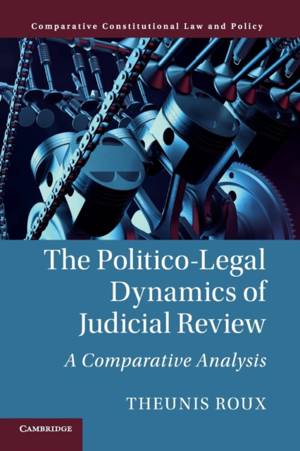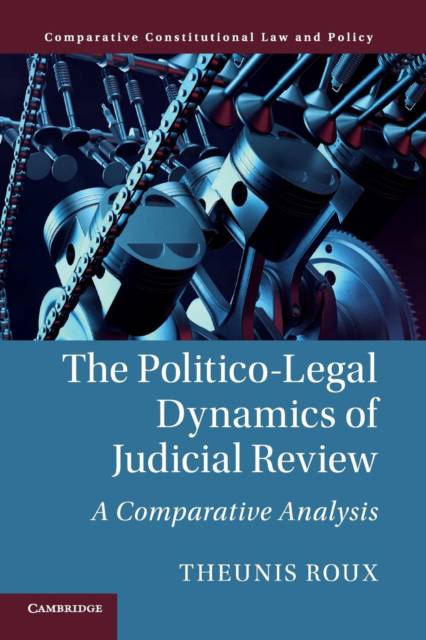
- Afhalen na 1 uur in een winkel met voorraad
- Gratis thuislevering in België vanaf € 30
- Ruim aanbod met 7 miljoen producten
- Afhalen na 1 uur in een winkel met voorraad
- Gratis thuislevering in België vanaf € 30
- Ruim aanbod met 7 miljoen producten
Zoeken
€ 72,45
+ 144 punten
Uitvoering
Omschrijving
Comparative scholarship on judicial review has paid a lot of attention to the causal impact of politics on judicial decision-making. However, the slower-moving, macro-social process through which judicial review influences societal conceptions of the law/politics relation is less well understood. Drawing on the political science literature on institutional change, The Politico-Legal Dynamics of Judicial Review tests a typological theory of the evolution of judicial review regimes - complexes of legitimating ideas about the law/politics relation. The theory posits that such regimes tend to conform to one of four main types - democratic or authoritarian legalism, or democratic or authoritarian instrumentalism. Through case studies of Australia, India, and Zimbabwe, and a comparative chapter analyzing ten additional societies, the book then explores how actually-existing judicial review regimes transition between these types. This process of ideational development, Roux concludes, is distinct both from the everyday business of constitutional politics and from changes to the formal constitution.
Specificaties
Betrokkenen
- Auteur(s):
- Uitgeverij:
Inhoud
- Aantal bladzijden:
- 390
- Taal:
- Engels
- Reeks:
Eigenschappen
- Productcode (EAN):
- 9781108442329
- Verschijningsdatum:
- 8/08/2019
- Uitvoering:
- Paperback
- Formaat:
- Trade paperback (VS)
- Afmetingen:
- 152 mm x 229 mm
- Gewicht:
- 521 g

Alleen bij Standaard Boekhandel
+ 144 punten op je klantenkaart van Standaard Boekhandel
Beoordelingen
We publiceren alleen reviews die voldoen aan de voorwaarden voor reviews. Bekijk onze voorwaarden voor reviews.







